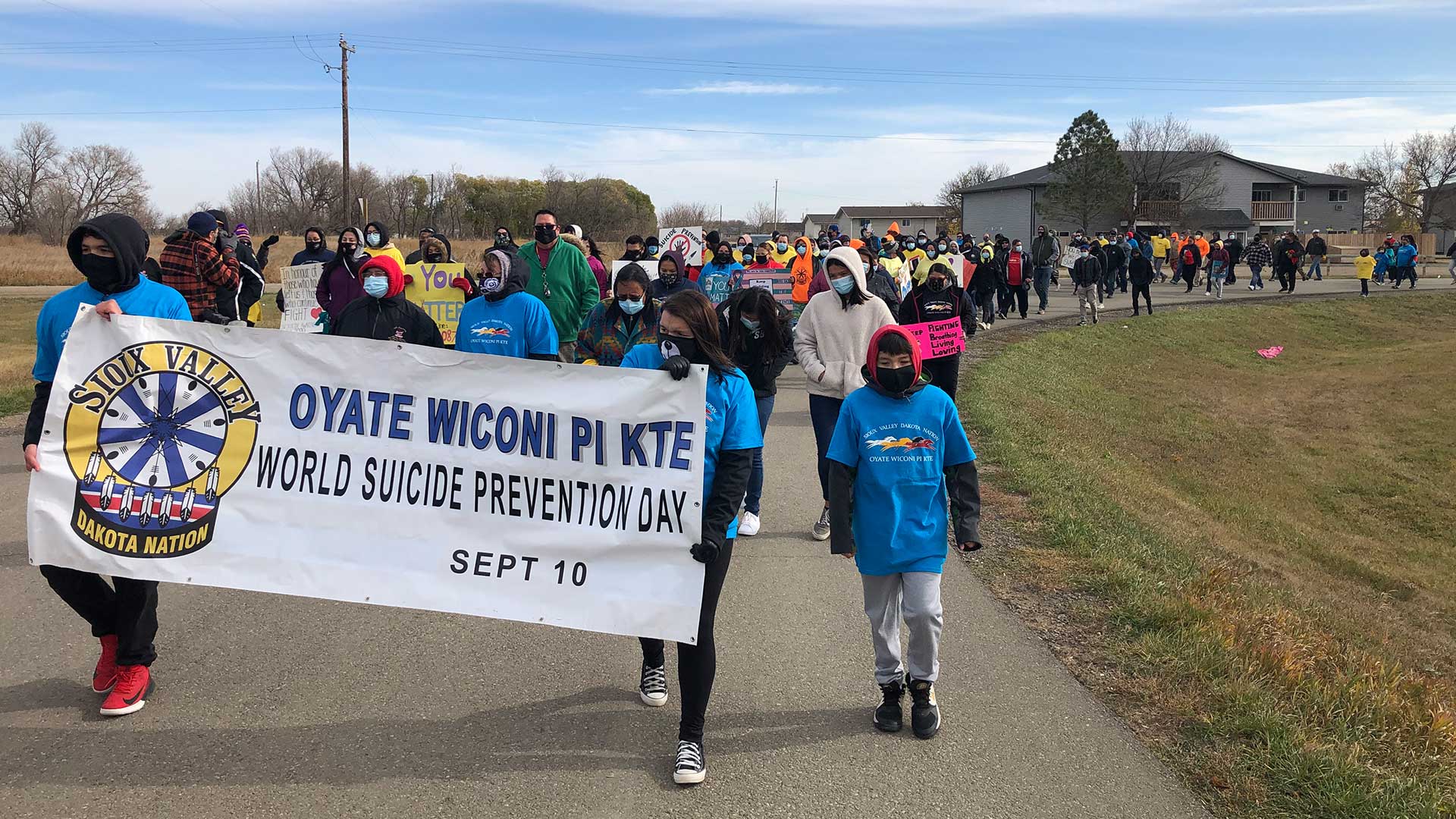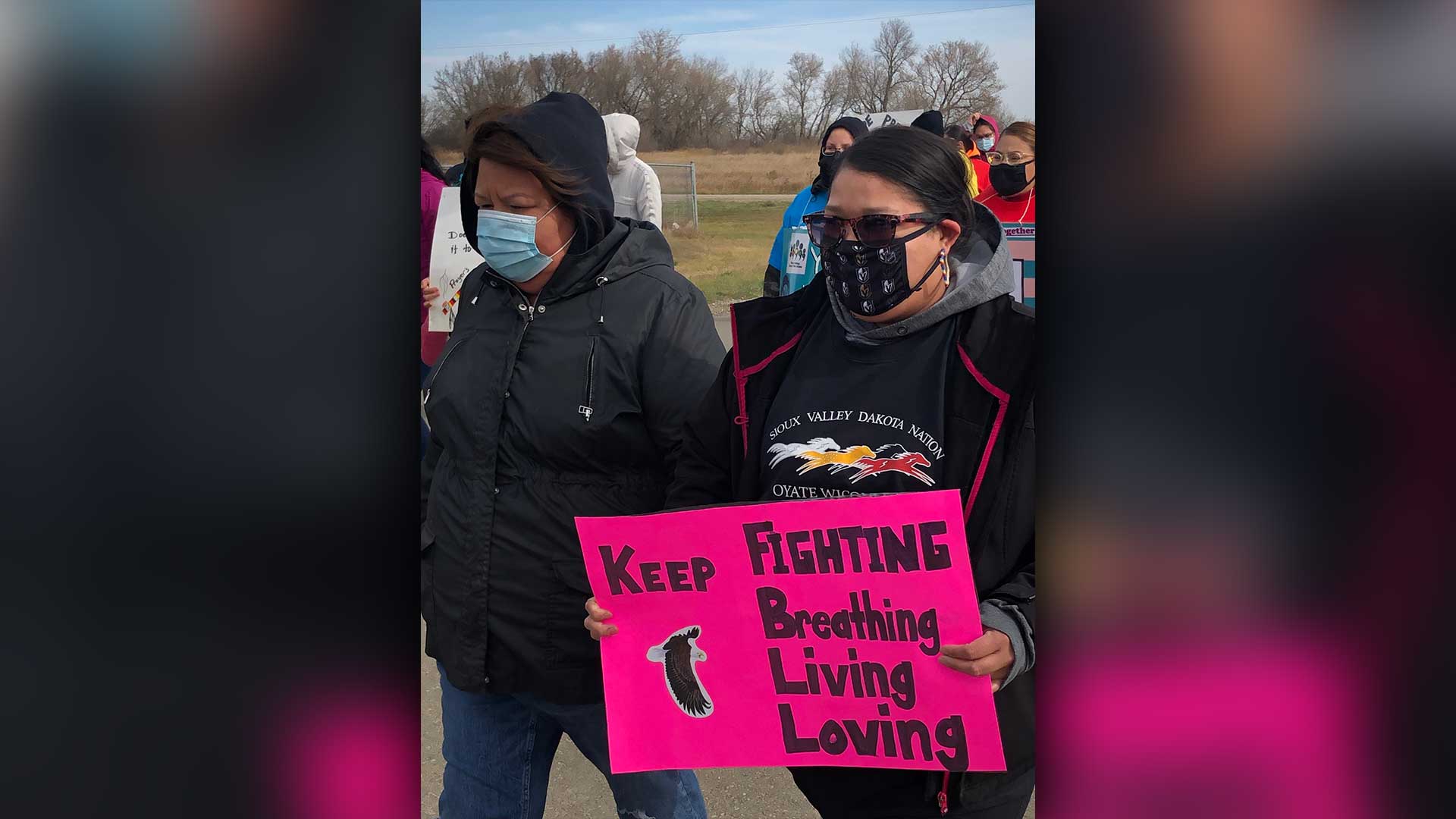The chief of Sioux Valley Dakota Nation says that while the federal money it was supplied to help the community deal with its mental health issues, it won’t be enough in the long term.
Indigenous Services Canada confirmed it will provide $141,000 to Sioux Valley for mental health services.
But Chief Jennifer Bone says that it’s not enough money to cover the necessary resources they need like four new mental health workers and a healing lodge as part of a long term solution.
“It’s not anywhere near enough to hire four full time professionals, but we have posted for another full time health position so that will go towards that as well and that’s probably going to take up a large amount of that money,” said Bone.
The community, located 262 km due west of Winnipeg, Man., and a population of about 2,500, recently held a walk to raise awareness of mental health issues and suicide.
The community has seen 15 suicide attempts since January. Six people have died by suicide since March.

“It definitely raised some red flags that we need to do more, we need to provide more mental health services here in the community and relying on our health team and health professionals to get their insight on what we need to do to ensure that all those services are provided,” said Bone.
The community declared a state of emergency Oct. 9, one day before World Mental Health Day.
The walk was originally scheduled to take place in September but a suicide and death from illness led to two postponements. Overall the community has seen close to 40 deaths, from illness, natural causes and an unfortunate ATV accident involving a young man.
Sioux Valley Health Director Margaret Roscelli believes past trauma combined with COVID-19 has led to problems like suicides in not only Sioux Valley, but other Indigenous communities.
“Well I think it’s well known in the many studies that have been done the things that have happened to us in the past that it’s due to intergenerational trauma that we’ve suffered through,” said Roscelli.
“You know the Indian agent coming to live and telling us how to live our lives and then having the 60s scoop, and the residential schools and all those different assimilations and practises that have been put upon us and it’s all been in our DNA.”
Roscelli added that any loss of life impacts the close knit community, and while the pandemic has limited what they can do, the community is there to support one another.
“We go out there and talk to the families and offer our condolences, we offer whatever support we can provide to them and try to share in their grief,” she said. “And we do share in their grief. We do cry with them, we sit and we reminisce, remember the good times, the memories that are had of the ones that have gone on.”

Jo-Ann McKay is a Sioux Valley resident who knows the pain of losing a family member from suicide in the past.
She believes community gatherings like this – while under unfortunate circumstances – can help the well-being of the community in these times.
“I think we need more walks in anything, we just need more walks because then it shows that yes these people care enough to come out in the cold in the wind to go for a short walk you know, maybe I can call one of them if they need to call somebody. They’ll remember who was on the walk, you know that kind of thing.”
An emergency response team arrived in the community to offer support and services as needed, and a second full time mental health worker position is being added in the community.









